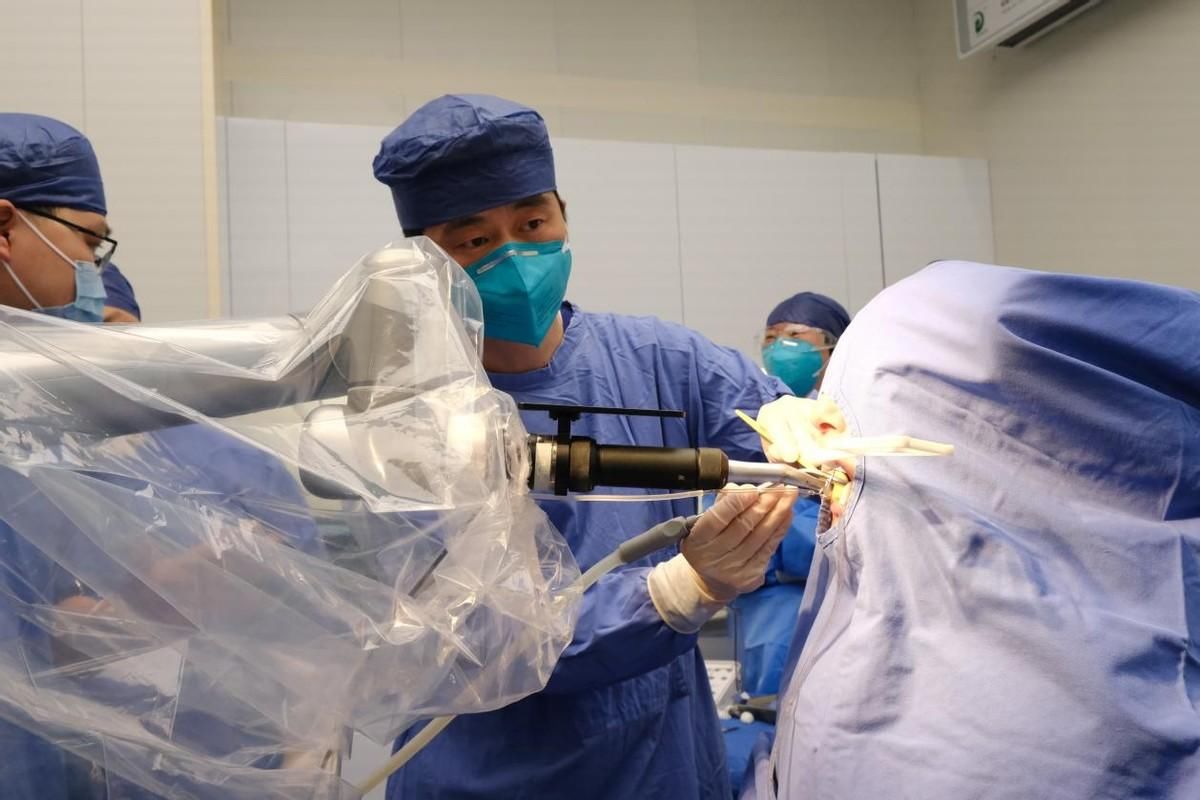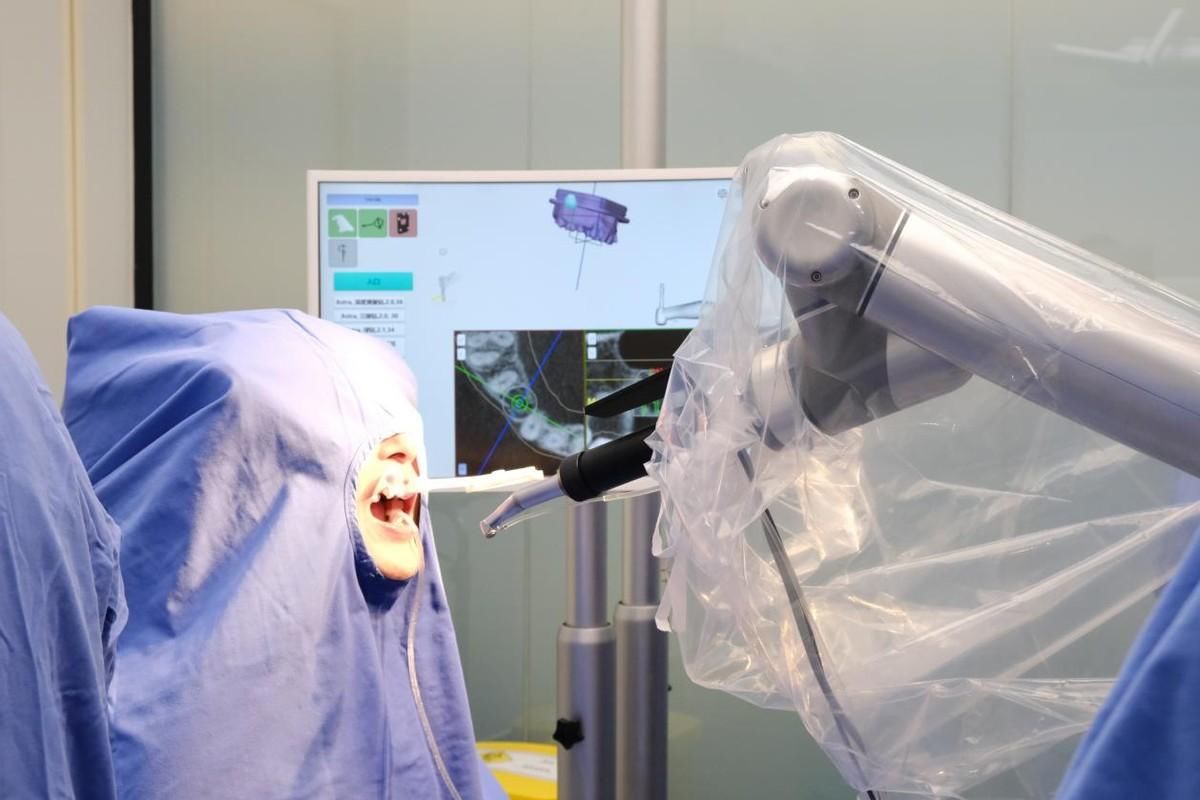On July 25th, the team of Xu Yubo and Wang Shaohai from the Stomatological Center of Dongfang Hospital Affiliated to Tongji University completed a special dental implant restoration for Ms. Zhang, because this is the first dental implant surgery performed by an autonomous robot in Shanghai. Dental implants are generally completed in two stages. In the first stage, a root is first planted; in the second stage, a crown can be installed on the root of the re-implanted tooth. On February 16 this year, Ms. Zhang completed the first phase of robotic dental implant surgery at the Oral Medical Center of Dongfang Hospital Affiliated to Tongji University. Due to the delay of the epidemic, she has successfully completed the second phase. From this day on, Ms. Zhang finally regained a healthy, beautiful and complete tooth.
Five years ago, Ms. Zhang lost a front tooth due to severe dental disease. Because traditional dental implants need to rely on doctors’ many years of clinical experience, Ms. Zhang’s small gap between missing teeth and high surgical risks caused her to hesitate to go for dental implants, which also made it difficult for Ms. Zhang to “open her mouth” troubles.

In February this year, Ms. Zhang learned that the Dongfang Hospital affiliated to Tongji University had the latest and more accurate dental implant technology. , I came to the Stomatological Center and wanted to try the “black technology” of Stomatology – Robotic Dental Implant Technology. Center directors Xu Yubo and Wang Shaohai made a detailed robot implant plan for her after learning about Ms. Zhang’s situation.
During the operation, the doctors did not use a scalpel, but tapped the button to control the “robot”. On the display screen behind them, rows of data were constantly changing with the movement of the robotic arm. The “arm” of the robot works precisely and quickly according to the planned path, and places the implant in the predetermined area according to the pre-designed position, angle and depth. Although the robotic surgery technology is precise, minimally invasive, and efficient, Ms. Zhang was still a little nervous because of the new technology, and because of her nervousness, Ms. Zhang’s head couldn’t help but move slightly. At this time, the robot system immediately followed suit. Adjustment, the whole process is coherent and precise.

Because all of Ms. Zhang’s imaging data had been imported into the robot system in advance before the operation; Commissioning, from finding the correct position to precise implantation, completed the first stage of surgery for Ms. Zhang in just 4-5 minutes. When she told Ms. Zhang that the operation had been completed, she was stunned and pleasantly surprised, “To be honest, I didn’t know the operation and completion of the operation, but it was all over, and I was nervous for nothing.” This carefully prepared operation solved her many years of pain. The troubles have also enhanced her trust in the robot’s participation in medical work – the operation time is short, no sutures are required, there is very little bleeding, and there is almost no wound. She said that this “black technology” is amazing. After several months of waiting for the root to stabilize, the second step of wearing the teeth was completed recently, finally officially announcing that Ms. Zhang has regained healthy teeth.
“Tooth loss has a huge invisible patient group. Epidemiological surveys show that there are currently about 400 million tooth loss patients in my country due to disease, age or accident.” Xu Yubo, director of the Stomatological Center According to the introduction, robotic surgery is different from traditional surgical techniques. It requires our doctors not only to have traditional dental implant technology, but also to have composite skills such as digital technology and mechanical engineering technology. “At present, the popularization of “black technology” is still difficult, but the robot era has ushered in the dental center of Dongfang Hospital Affiliated to Tongji University. I believe that in the near future, it will make oral clinical medicine “more powerful” and will also benefit more of dental patients”.